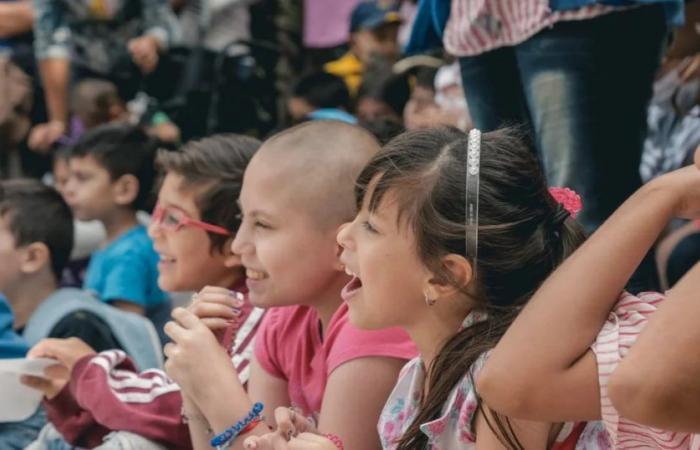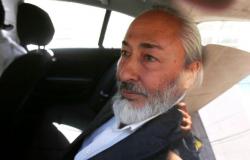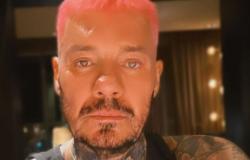Natalí Dafne Flexer was nine years old when she died because of a osteosarcoma, the most common bone cancer in children, who had been diagnosed three years earlier. Anyone who has never heard her story may resonate with the little girl’s name, since that is the name of the foundation that his mother, Edith Grynszpancholccreated to help other children with cancer.
The Natalí Dafne Flexer Foundation turns 30 and will celebrate tomorrow with its traditional solidarity dinner “Chefs in their element”in which the most outstanding chefs of Argentina will delight the 800 attendees with a delicious Pasta Party. It will be from 8 p.m., in the Libertador Room of the Sheraton Hotel, and the total proceeds will be destined to the construction of the Differentiated Care Service for Adolescents and Young People with Cancer that the Foundation is building at the Posadas Hospital.
Along with Matías Lorenzo, the hotel’s host chef, the following will be present: Maru Botana, Danilo Ferraz, Pedro Picciau, Luciano Picciau, Gastón Riveira and Karina Gao. In addition, the Peruvian food restaurant Puerta del Inca, Yanzi Catering & Eventos and the pizza party caterer Cambalache will be in charge of the dinner reception.
The event will be hosted by journalists Mario Massaccesi and Sandra Borghi. And the night will feature live shows by Los Charros and Buenos Aires Gospel Show.
On the occasion of the 30th anniversary of the foundation created in November 1994, Infobae She spoke with her mentor and president about what motivated her, in the midst of the tragedy of losing her daughter, to help other children with the same illness. “My daughter Natali was six years old when we received the news that he had cancer, osteosarcoma – he began to relate -. Receiving a diagnosis like this always causes a very high emotional impact. Suddenly, from one moment to the next, you enter a totally unknown and unimaginable world.”
Edith said that during those times she had to make “an infinite number of important decisions quickly.” She also had to reorganize her family, home and work because she needed to put almost all her energy into carrying out her daughter’s treatment, which was going to take several years.
“After Natalí’s death, at the age of nine, I felt that something had to be done, in his memory and with everything he had learned. I realized that my experience could help and do good to many people who were going through the same situation as me. I clearly felt that I couldn’t stay doing nothing,” the woman recalled.
And so it was that, guided by that feeling, very few days after the death of his daughter, he began to plan the foundation. “Create it helped me go through the pain and the absence -he analyzes today from a distance-. It also meant the possibility of offering support and support to thousands of families who, like me, one day received the diagnosis that their child had cancer.”
The Natalí Dafne Flexer Foundation is a non-profit organization, whose mission is to promote access for children, adolescents and young people with cancer to appropriate treatment, in a timely manner, and provide them and their families with the best conditions of support and carethroughout the treatment and beyond it.
It has nine headquarters strategically located throughout the country: in front of the Ricardo Gutiérrez Children’s Hospital, in front of the Garrahan Hospital, in the Pedro Elizalde Hospital (former Casa Cuna), in the Posadas Hospital, in the Niño Jesús Hospital in Tucumán, in the Juan Pablo II Hospital in Corrientes, in the Avelino Castelán Hospital in Chaco, in the Dr. Quintana Maternal and Child Hospital in Jujuy, and in Tierra del Fuego.
Offers free of charge treatment support, psychological support and recreation to more than 1,500 kids with cancer and your families.
It also supports training in child and adolescent oncology of professionals from Argentina and Latin America, administers clinical research funds and carries out psychosocial research in child and adolescent cancer.
Besides, carries out infrastructure and equipment works in public hospitals in the country, and coordinates the Network of Organizations to Help Children with Cancer, at the national and Latin American level, in order to detect common problems and promote the generation of structural solutions for the entire country, carrying out Advocacy and Defense of Rights.
“Throughout these 30 years, we strengthened our networking at a national and international level, becoming a leading organization in the problem of childhood and adolescent cancer, with incidence in Argentina and Latin America,” Edith highlighted.
As a reference in the matter that is, Infobae He wanted to know the perspective of the president of the foundation that carries out such work about the situation of childhood cancer in the country today.
As he considered, “Argentina has a long history of caring for children with cancer, which has been compulsorily covered through the Mandatory Medical Program (PMO).”
“This last year, with the Promulgation of the Oncopediatric Law it has been tried establish greater support for treatments and provide financial support to families”said the woman, for whom “however, This law has failed to reduce access barriers, delays in coverage and continues to generate inequalities.”
And after highlighting that “the new social benefits, especially with the licenses granted, are generating difficulties in treatment coverage for those who have formal work”, Edith concluded: “It is important that, throughout the country, Organizations that help children and young people with cancer continue to advocate for compliance with the law and the correction of its defects.”






